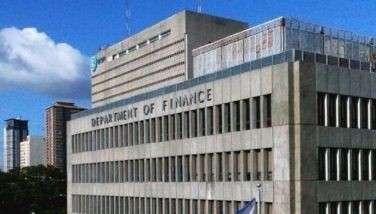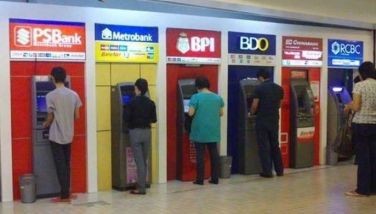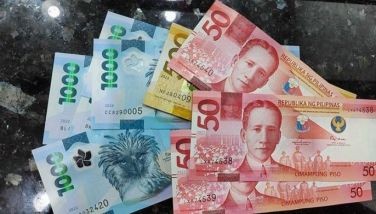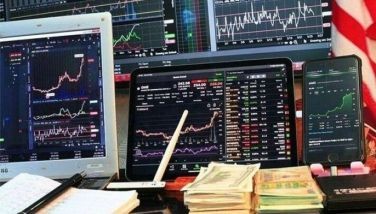Highest in 18 months: Inflation kicks up to 2.3% in Sept
MANILA, Philippines – The cost of goods and services went up at a faster rate in September as inflation jumped to its highest level in 18 months, the state data agency reported yesterday.
The Philippine Statistics Authority said inflation – the rate of increase in the consumer price index – kicked up to 2.3 percent in September, from 1.8 percent in August, as prices of both food and non-food items rose.
“The increase in inflation can be attributed to the decline in production since August and the low base effect for non-food items,” said National Economic and Development Authority (NEDA) officer-in-charge Rosemarie G. Edillon.
She added the September inflation figure still falls within the 1.6-2.4 percent forecast of the Bangko Sentral ng Pilipinas (BSP).
However, this was the fastest pace since the consumer price index averaged 2.4 percent in March last year. For the first nine months, inflation averaged 1.6 percent, which is well within the two to four percent target set by the BSP for this year.
“This outturn is consistent with our expectation that inflation will slowly inch up towards the national government target range over the policy horizon. This also confirms that at the moment there is no compelling reason to change settings on our policy rates,” BSP Governor Amando Tetangco Jr. said.
The benign inflation environment as well as robust domestic demand has allowed the BSP’s Monetary Board to keep its policy stance unchanged since September 2014.
“Inflation will remain low and stable for the rest of the year with the continuous expansion of the domestic economy, solid private household consumption and investment, buoyant business and consumer sentiment, and adequate credit and domestic liquidity,” said Edillon.
She warned international and domestic risks, however, are tilted to the upside from a possible rally in oil prices, depreciation of the peso against the US dollar, and pending petitions for electricity rate increases.
Chidu Narayanan, economist for Asia at Standard Chartered Bank, said the upward pressure on headline inflation from higher food inflation would persist in the medium term.
“Inflation may edge further in the near term, but staying near the lower end of the central bank’s two to four target range in the next few months, and remain unconcerning,” he said.
For her part, ANZ Bank economist Eugenia Victorino said higher excise taxes on fuel products would have manageable effect on the average headline inflation.
Victorino said the bank recently lowered its inflation forecasts to 1.6 percent instead of 1.9 percent this year and to 2.9 percent instead of three percent next year.
The PSA data showed food inflation accelerated to 3.1 percent in September 2016 from 2.5 percent in the previous month due to the adverse effects brought about by the series of tropical cyclones that devastated the country.
“Rice prices will remain stable since the 250,000 metric tons of rice imported from Thailand and Vietnam is expected to arrive by the end of October,” the NEDA official said.
“We must keep on strengthening the agricultural sector through a comprehensive agricultural development program that aims to increase the resiliency of the sector and create a balance in agricultural policy,” said Edillon.
Also, non-food inflation increased to 1.5 percent from 1.1 percent in the previous month. This is due to the price increase in all major non-food items such as housing, water, electricity, gas and other fuels, and transport.
- Latest
- Trending

































